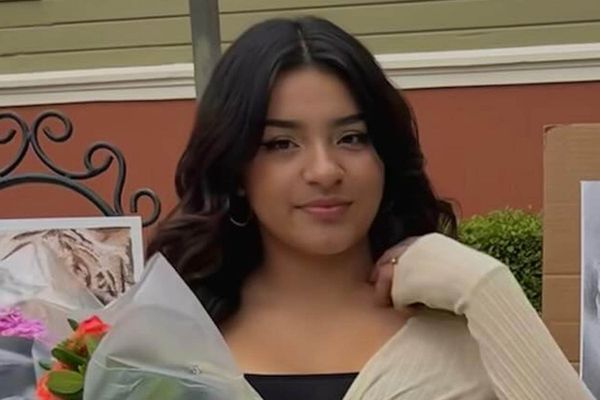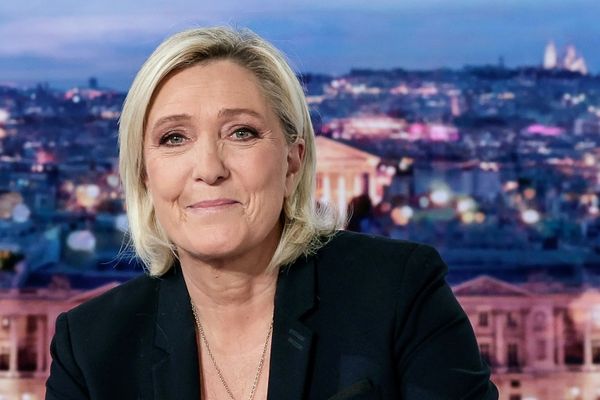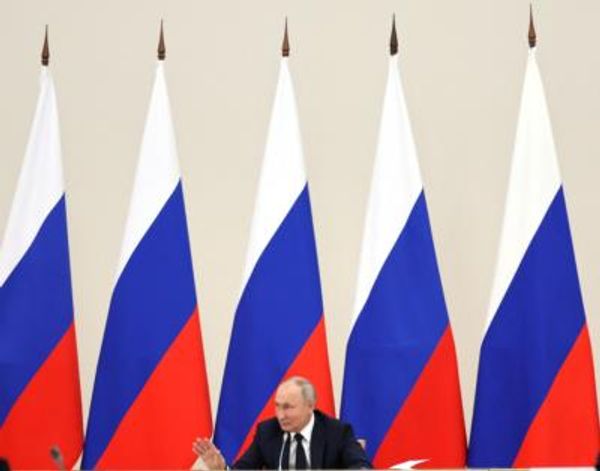
Rio de Janeiro (AFP) - At a samba bar in Rio de Janeiro, three university students are engaged in a vigorous political debate as they count down the days to Brazil's presidential elections.
Their preference?"We are seated in an 'L'" for Lula, Letizia Corvello, a 22-year-old law student, told AFP.
Brazil's youngest voters are staking their future on the oldest of the two frontrunners: 76-year-old leftist Luiz Inacio Lula da Silva, who is hoping for a comeback 12 years after leaving office at the end of two successive presidential terms.
Lula has a strong lead in the polls over far-right incumbent Jair Bolsonaro, 67. The men face off in a first voting round on Sunday.
"The last thing I want is for Jair Bolsonaro to be re-elected," said Corvello.
"We need to fight for our future and for that of the university" where she studies.
Young people have led the anti-Bolsonaro movement in Brazil with protests against his cuts to education spending, his management of the coronavirus epidemic, and police violence.
"Some of the environmental issues, the destruction of the Amazon and just the...egregious policies of Bolsonaro are of concern to a lot of especially younger people," analyst Michael Shifter of the Inter-American Dialogue think tank told AFP.
And they seem to be putting their money where their mouths are.
More than 2.1 million people aged 16 and 17 -- about a fifth in this age group -- have registered to vote ahead of Sunday's first election round -- a 51-percent jump from 2018.
Voting is optional for Brazilians aged 16 and 17, and compulsory from 18 up.
- 'Existential zombies' -
The 2022 youth registration numbers "are unprecedented in the history of Brazil," political scientist Marco Antonio Teixeira of the Getulio Vargas Foundation told AFP.
Under Bolsonaro, young people seem to have learned the importance of having a political voice, he said.
Youths "suffered a lot with the pandemic, (they were) the most affected by unemployment," said Teixeira.
Bolsonaro and his government also managed to repeatedly offend the sensibilities of a younger generation that values respect for cultural and gender diversity.
A case in point: in an address in 2020, Bolsonaro's then education minister Milton Ribeiro referred to young people as "existential zombies" who "no longer believe in anything, from God to politics."
"I never imagined there were still people with such a retrograde beliefs," said Corvello in response.
"Bolsonaro made it possible for people to go out on the street to defend violence and discrimination."
Lula's legacy
Polls show 52 percent of voters aged 16 to 24 opting for Lula, compared to 32 percent for Bolsonaro.
Some were not yet born during Lula's last term, others were mere infants, but they all know about Lula's educational legacy: increasing scholarships and introducing quotas to help people from racial and socio-economic minorities gain access to good schools.
"Everyone knows what Lula did," said Adrianny Brasil, 22, a resident of the Mare de Rio slum complex where school attendance depends on there being no shootings and university is an unattainable dream for most.
"I am the only 'favelada' (slum-dweller) in my (university) physics course, all the other students are from the elitist areas of Rio, like Ipanema," said Brasil, who hopes there will be more like her under a new Lula government.
Not everyone is in agreement.
Mateus de Medeiros, an 18-year-old mechanical engineering student, regrets that the choice is limited to "the extreme right or the extreme left".
"I wish there was another candidate and we didn’t have to vote for one just to exclude the other," he told AFP.
Bolsonaro also has ardent supporters among the youth.
Gabriel Lira, a 22-year-old Afro Brazilian who works as a store employee, believes many university students are victims of brainwashing by "leftist professors."
"If they were better informed, they would see that (Lula) resembles Maduro and the left-wing dictators," he told AFP at Campinas on the outskirts of Sao Paulo, referring to Venezuelan President Nicolas Maduro.
And he denied Bolsonaro was racist, despite having once said about a community of Black slave descendents: "They don't do anything.They're no use even to procreate."
"It was an unfortunate statement.But if he really was (racist) he'd be capturing Black people and putting them back into slavery," said Lira.







